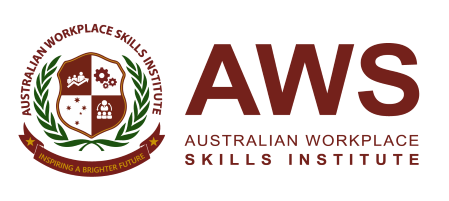Student support, welfare and behaviour
Access and equity policy
The College Code of Practice includes an access and equity policy. This document is available on request. It is the responsibility of all staff to ensure the requirements of the access and equity policy are met at all times.
Complaints and appeals procedure
The College has a complaints and appeals procedure to provide students with a fair and equitable process for resolving any complaints or appeals they may have. The complaints and appeals procedure includes a requirement that an independent mediator will be appointed if the student is dissatisfied with the process undertaken by the College.
Complaints and appeals should be handled in an efficient and timely manner. Where the RTO considers more than 60 calendar days are required to process and finalise the complaint or appeal, the RTO:
- Informs the complainant or appellant in writing, including reasons why more than 60 calendar days are required; and
- Regularly updates the complainant or appellant on the progress of the matter. If you have a complaint or appeal you should take the following steps:
- Contact the College Student Administration Manager to obtain a copy of the complaints and appeals procedure and the application form
- Complete the application form and lodge it with the Student Administration Manager
- Follow up with the Student Administration Manager
College Contact
Contact the College Administrator for assistance if you have any difficulties with your course, study requirements or assessment
Phone: 02 8971 0170
Fax: TBA
Email: sydibc@gmail.com
Relevant legislation and information
A range of legislation and information applicable to staff and students.
| Fire, ambulance and police emergency | Phone 000 |
| Translating and Interpreting Service | Phone 131 450 |
| Life Line 24 hour Counselling, Advice and Referral Services | Phone 131 114 |
| Complaints or problems | www.oso.gov.au |
| CRICOS Legislation and regulation | www.aei.gov.au |
| Employment information | www.fairwork.gov.au |
| Equal opportunity | www.lawlink.nsw.gov.au |
| Health Services | www.liferesolutions.com.au |
| International Student Legal Advice | 9698 7645 |
| Work Health & Safety | www.liferesolutions.com.au |
| Protection of student fees | www.tps.gov.au |
| NSW Transport Information (Bus/Train/Ferry) | 131 500 |
| RTO and CRICOS registration | www.asqa.gov.au |
| Study Information | www.studyinaustralia.gov.au |
| Telephone Interpreter Service | 131 450 |
| Lifeline (crisis support) | 131 114 |
| Alcohol and Drug Information Service | 9361 800 |
| Sexual Assault, Domestic and Family Violence Counselling Service | 1800 737 732 |
| Department of Immigration and Border Protection | 131 881 |
| St Vincent's Hospital | 8382 1111 |
| NSW Multicultural Health Communication Service | 9816 0347 |
| Family Planning (for pregnancies) | 8752 4300 |
| Sydney Sexual Health Centre (for sexually transmitted diseases) | 9382 7440 |
It is the responsibility of all staff to ensure the requirements of relevant legislation are met at all times. Use the web sites indicated, or contact the Student Administration Manager if you require further information.
There may be additional, course-specific, legislation that is relevant. Information about this legislation will be communicated during the course.
Plagiarism and cheating
Plagiarism is a form of cheating. It is taking and using someone else's thoughts, writings or inventions and representing them as your own. Plagiarism is a serious act and may result in a students’ exclusion from a unit or a course. When students have any doubts about including the work of other authors in their assessments, they must consult with their trainer to discuss the matter. The following list outlines some of the activities for which a student can be suspected of plagiarism or cheating:
- Presenting any work by another individual as one's own unintentionally
- Handing in assessments markedly similar to or copied from another student.
- Presenting the work of another individual or group as their own work.
- Allowing another student to copy your work
- Handing up assessments without the adequate acknowledgement of sources used, including assessments taken totally or in part from the internet.
Legitimate cooperation between students on assignments is encouraged, since it can be a real aid to understanding. It is legitimate for students to discuss assignment questions at a general level, provided everybody involved makes some contribution. However, students must produce their own individual written solutions. Copying someone else’s work is plagiarism, and is unacceptable.
Copyright
Students must be careful when photocopying the work of others. The owner of the material may take legal action against students of the college if the owner's copyright has been infringed. Students are allowed to do a certain amount of photocopying for research or study purposes. Generally, 10% or one chapter of a book is acceptable, where the participant is studying with, or employed by, an educational institution.
Student code of behaviour
The Student Code of Behaviour requires the following rights and expectation to be respected and adhered to at all times.
- The right to be treated with respect from others, to be treated fairly and without discrimination, regardless of religious, cultural, racial and sexual differences, age, disability or socio-economic status
- The right to be free from all forms of intimidation
- The right to work in a safe, clean, orderly and cooperative environment
- The right to have personal property (including computer files and student work) and the Registered Training Organisation property protected from damage or other misuse
- The right to have any disputes settled in a fair and rational manner (this is accomplished by the complaints and Appeals Procedure)
- The right to work and learn in a supportive environment without interference from others
- The right to express and share ideas and to ask questions
- The right to be treated with politeness and courteously at all times
- The expectation that students will not engage in copyright breaches, cheating or plagiarism
- The expectation that students will submit work when required.
- The expectation that students will maintain consistent participation by attending all required classes and assessments.
- The expectation that students will attend all required classes and assessment as part of the requirement to progress through the course satisfactorily and complete the course in within the time frame notified on the student enrolment form.
- A member of the Registered Training Organisation staff will contact students in the first instance and arrange a counselling meeting to discuss the issue or behaviour & to determine how the issue might be rectified. This meeting and its outcomes will be documented, signed by all parties and included on the student’s personal file. (Step 1)
- Where there is a second breach of the Student Code of Behaviour, students will be invited for a personal interview with the Director of Studies to discuss the breaches further. This meeting and its outcomes will be documented, signed by all parties and included on the student’s personal file. (Step 2)
- Should a third breach of the Student Code of Behaviour occur after the stage 2 meeting, the student will be provided with a final warning in writing & a time frame in which to rectify the issue. A copy of this letter will be included on the student’s personal file. (Step 3)
- After the three steps in the discipline procedure have been followed, and breaches of the Code of Behaviour still continue, training services will be withdrawn and the student will be sent a student suspension or cancellation letter.
- Failure to attend scheduled meetings may result in the College deciding to suspend or cancel a student’s enrolment
- At any stage of this procedure students are able to access the College complaints and appeals procedure to settle any disputes that may arise.
For non-compliance with the Code of Conduct the following procedure for discipline will be followed:

